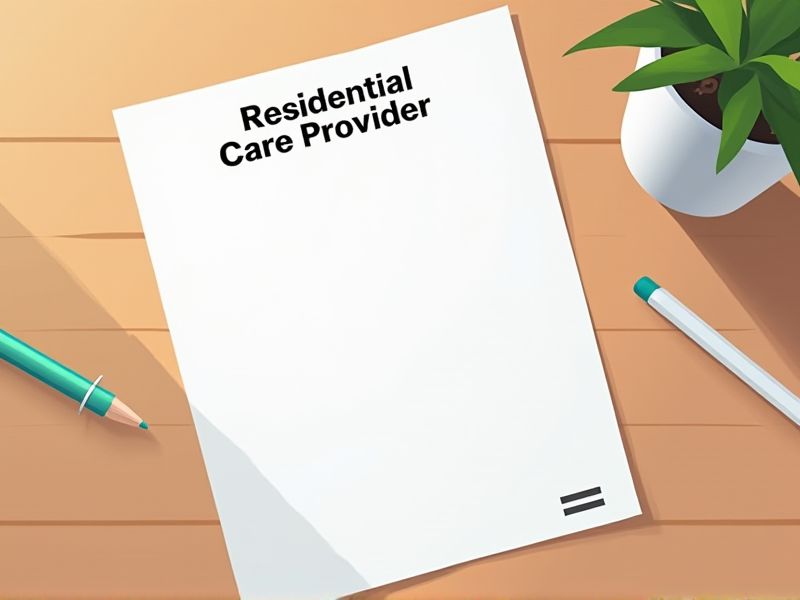
Residential care providers play a crucial role in ensuring the safety and well-being of individuals requiring assistance with daily living. Certifications help validate a provider's expertise, instilling trust in families and clients. They also ensure compliance with regulatory standards and enhance the quality of care. Here are some important certifications necessary for Residential Care Providers.
CPR/First Aid Certification
CPR/First Aid certification equips residential care providers with the skills required to respond promptly to medical emergencies, increasing the chances of survival. In residential care settings, timely intervention can prevent minor incidents from escalating into severe health crises. Certification ensures providers can offer immediate assistance, bridging the gap until professional medical help arrives. Regulatory compliance often mandates such certifications to maintain safety standards, aligning with legal and ethical caregiving responsibilities.
Certified Nursing Assistant (CNA) Certification
A CNA certification ensures that residential care providers possess essential skills for basic patient care and daily living assistance. The certification process covers critical knowledge areas such as the fundamentals of patient safety, infection control, and communication strategies in healthcare settings. Certified nursing assistants are trained to effectively recognize and address the immediate needs and changes in health status of residents. Consequently, this certification not only validates the competency of care providers but also elevates the standard of care given in residential facilities.
Medication Administration Certification
Medication Administration Certification is needed for residential care providers because it ensures they possess the essential skills and knowledge to safely administer medications to residents, reducing the risk of errors that could lead to adverse health effects. The certification process familiarizes providers with protocols and best practices vital for maintaining a standardized level of care. Training in medication administration promotes regulatory compliance with state and federal healthcare standards, which is crucial for the legitimacy and operational status of the care facility. A certified staff contributes to increased trust and confidence from residents and their families, leading to improved client satisfaction and facility reputation.
Mental Health First Aid Certification
Mental Health First Aid Certification equips residential care providers with the skills to identify and respond to signs of mental health crises, enhancing the safety and well-being of residents. Trained providers can offer timely support, reducing the risk of escalation and helping to stabilize situations effectively. This certification fosters a deeper understanding of mental health conditions, promoting empathy and reducing stigma within care environments. Implementing such training can lead to improved health outcomes, supporting a comprehensive approach to resident care.
Infection Control Certification
Infection control certification enhances the ability of residential care providers to implement effective measures, reducing the spread of infections among residents. It ensures staff are equipped with standardized knowledge and skills, improving overall health outcomes within facilities. Certification aids in compliance with regulatory requirements, which is crucial for maintaining facility accreditation and funding. By focusing on infection prevention, providers can significantly lower healthcare costs associated with treating preventable infections.
Dementia Care Certification
Dementia care certification ensures residential care providers have specialized knowledge, which leads to better management of dementia-related behaviors. This specialized training often improves communication and reduces misunderstandings, which enhances the quality of life for residents. Certification assures families and potential clients of the facility's competence, which may increase trust and occupancy rates. Consistent standards set by certification can lead to improved care outcomes and regulatory compliance in residential care settings.
Naloxone Administration Certification
Naloxone Administration Certification equips residential care providers with the skills to respond effectively to opioid overdoses, which is crucial given the rising opioid crisis. Training ensures that providers can administer naloxone safely, potentially saving lives in emergency situations. With certification, facilities can meet regulatory compliance standards, ensuring they are prepared to handle substance-related incidents. Educated staff reduce the risk of opioid-related fatalities, enhancing the overall safety and well-being of residents.
Mandated Reporter Training Certification
Mandated Reporter Training Certification equips residential care providers with the necessary skills to identify and report signs of abuse or neglect, ensuring the safety of vulnerable populations. The training helps providers understand legal responsibilities, reducing the risk of legal consequences for failing to report incidents. Certification supports the creation of a safe living environment by promoting vigilance and accountability among staff. The training fosters a culture of awareness and empathy, improving overall care quality in residential settings.
HIPAA Compliance Certification
HIPAA compliance certification ensures that residential care providers adhere to strict regulations for protecting patient health information, minimizing the risk of data breaches. It builds trust with patients by demonstrating a commitment to confidentiality, fostering a safer care environment. Compliance reduces legal liability, as non-adherence can lead to significant penalties and legal consequences. Certification streamlines operations by aligning internal processes with federal standards, improving overall efficiency and quality of care.
Child Development Associate (CDA) Certification
CDA Certification provides residential care providers with essential skills in child development, ensuring they can meet the comprehensive needs of children. It enhances the credibility of providers, which can lead to increased trust from parents and agencies. Obtaining the certification aligns practitioners with state and federal regulations, minimizing legal and operational risks. It fosters a standardized approach to care, promoting consistent and quality outcomes for children in residential settings.
Summary
When you encounter a Residential Care Provider with certifications, you can expect enhanced trust in their quality of care. Certification often leads to improved staff training, ensuring better support for residents. Additionally, certified providers may adhere more strictly to safety protocols, reducing incidents and liability risks. This certification status generally results in a higher standard of care, improving overall satisfaction for both residents and their families.
